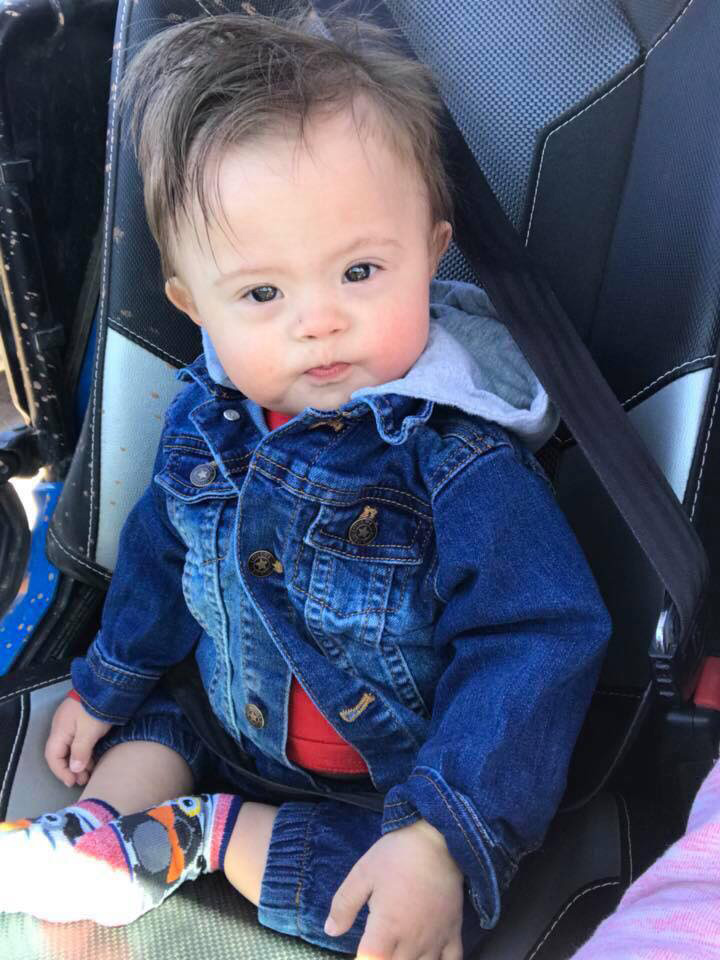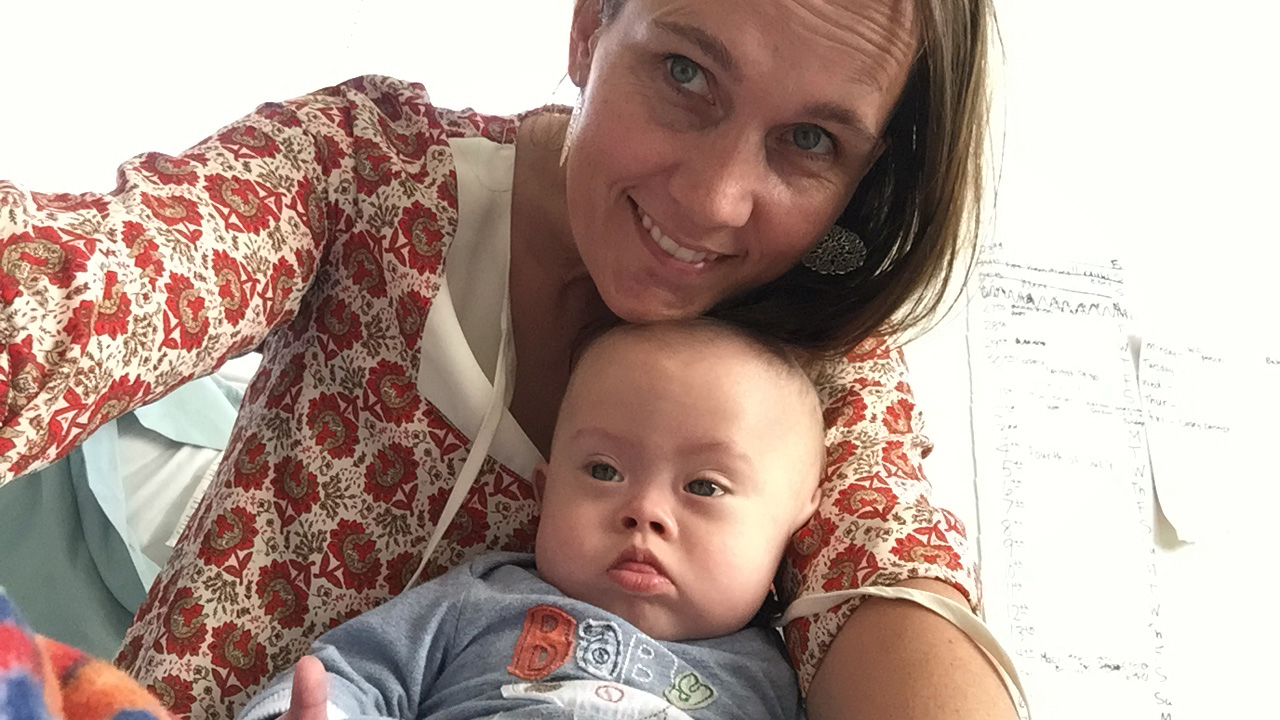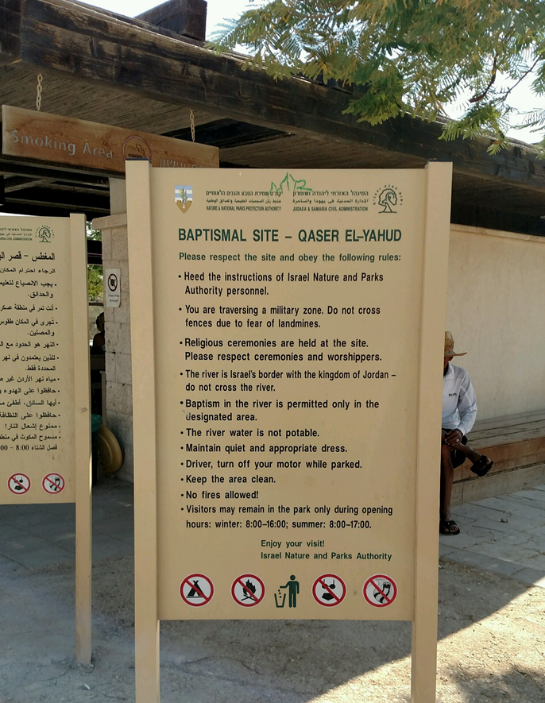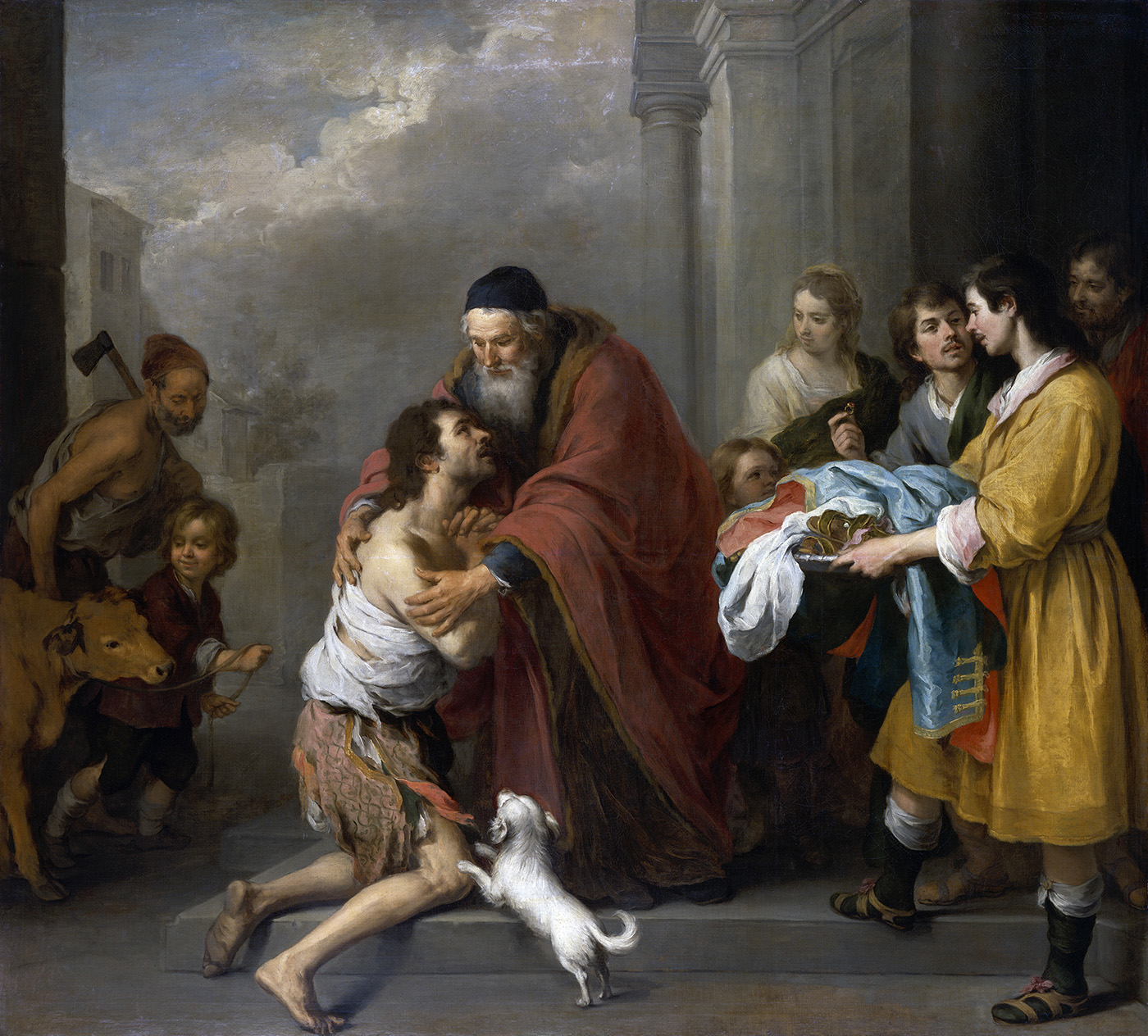Jennifer Wright
Giselle – Saved by a Second Choice
 By the time Giselle entered the world in early December, she arrived fully equipped with her own protective detail of three older brothers. They’re old enough to know their sister is a precious addition to their family, but they’re years away from understanding just how priceless she is.
By the time Giselle entered the world in early December, she arrived fully equipped with her own protective detail of three older brothers. They’re old enough to know their sister is a precious addition to their family, but they’re years away from understanding just how priceless she is.
What Giselle’s brothers will learn in time was that their mother, Samantha, was abandoned by Giselle’s father and turned to a chemical abortion pill because she felt it was her only way forward.
But regret set in almost as soon as Samantha had taken the first of two chemical abortion pills—which ends a baby’s life in utero ahead of the second and final pill to induce labor. Samantha changed her mind and reached out to the Abortion Pill Rescue helpline (1-877-558-0333).
Through the helpline, Samantha was connected to one of 450 professional healthcare providers in the nationwide Abortion Pill Rescue network. These providers are trained in a life-saving protocol that starts with an emergency injection of progesterone used since the 1950s to prevent miscarriages. It is highly effective.
Samantha’s daughter, Giselle, was born Dec. 1, 2017—an event celebrated all month by the pregnancy center in Massachusetts, where Samantha had learned about the life-saving option before going in for her abortion appointment.
“For those who have been following along with the story of Sam, and the miracle of Abortion Pill Reversal, we are so excited to introduce her little girl, Giselle,” the pregnancy center posted in early December. “Born Friday, December 1st at 2:00 p.m. 6lb 3oz, 18 3/4 in. Both mom and baby are in perfect health and doing wonderfully. And her 3 older brothers are completely smitten with their new sister!”
Heartbeat took a bold step in bringing APR into our life-saving network. It is a powerful and effective tool in bringing a second choice to moms and babies!
The “Problem”—and the Joy—of the Good News
Servants of Excellence
And when they did not find them, they began dragging Jason and some brethren before the city authorities, shouting, “These men who have turned the world upside down have come here also;” Acts 17:6
Paul, Silas, Jason and others caused quite a stir in Thessalonica, where Paul spent three weeks with the Jewish community, convincing many of the good news of Jesus’ identity and mission.
Yet, whenever there is good news some will find a problem. So it was in Thessalonica, where the Jewish leaders became jealous as more and more were persuaded Paul was right by saying, “This Jesus whom I am proclaiming to you is the Christ.” (Acts 17:3)
Because of their jealousy, the religious leaders of the day formed a mob (Acts 17:5), then dragged Jason and some of Paul’s friends in front of the city authorities, falsely accusing that “. . . they all act contrary to the decrees of Caesar, saying that there is another king, Jesus.” (Acts 17:7)
Paul probably made it clear that Jesus was not on earthly king, so why the false accusation? What was the real problem?
The real problem was about power. The religious leaders enjoyed being served by those they ruled over. They had full authority to make proclamations regarding not only religion, but about how the world around them (in this case, the Jewish community) would function.
No one was allowed to question their leadership or their authority. In short, they had a great life—and all of the power they could ask for. Until Paul showed up.
Paul, Silas, Jason and others were offering something new. This good news challenged the one thing the leadership held dear: Their power base. For if Jesus is king, the religious leaders were subject to him and suddenly, everyone was on equal footing.
To the religious leaders, this “turned the world upside down,” – their world.
It’s no wonder they were angry and jealous, creating mobs and making false accusations. They would do anything to protect their personal kingdoms.
For us and those we serve however, the good news is truly Good News. When we see Jesus as King, there is joy in knowing our King is one of reconciliation, hope and promise. Our King’s decrees aren’t those of a dictator (“Do this or else!”) but one of love (“Love your neighbor as yourself”).
And just like Paul and his friends, when we embrace this good news and share it with others, some—like in Paul’s day—won’t be happy. But if we’re faithful, we might see the results Paul did, where many choose instead to join with us in proclaiming the greatest news ever told.
by Kirk Walden, Advancement Specialist
Saving Tig's Life . . . Again.
 Misdy found herself in a situation where the only “practical solution” pointed to an abortion. She had six kids, a troubled marriage, and had just started a new job to help make ends meet. The news of a pregnancy was overwhelming and she justified taking the abortion pill.
Misdy found herself in a situation where the only “practical solution” pointed to an abortion. She had six kids, a troubled marriage, and had just started a new job to help make ends meet. The news of a pregnancy was overwhelming and she justified taking the abortion pill.
As soon as Misdy took the first dose of the abortion pill regimen, she knew she had made a horrible mistake.
“The drive home, I was just sick about what I just did and the thought that I was actually killing a baby with a heartbeat inside me. I went home and just cried and cried and knew I needed to seek help.”
With God’s provision, she found the Abortion Pill Rescue Network and was able to make a second choice to save her pregnancy.
And God saved Tig.
God uses these moments when the world seems to fall around you to help enlighten you to the fact that the only “practical solution” isn’t practical at all! Just as God used his angels to encourage Mary in her time of need and sent her to her cousin Elizabeth for additional support through her pregnancy, so too, He uses the Abortion Pill Rescue Network and pregnancy help centers to encourage women like Misdy.
“I know that Tig was sent here to me for a reason. He is the light and the best baby ever! He puts a smile on my face every single day.”
Through Heartbeat’s Abortion Pill Rescue Network, Misdy was able to save the life of her baby boy, Tig, after first making the choice to take the abortion pill.
And, yet, the fight was not over.

At her 19 week prenatal appointment, Misdy learned that her child had Trisomy 21—Down syndrome, the most common chromosomal condition in the United States. As doctors shared this news with her, one doctor in particular encouraged Misdy to go back down the dark path she had already roamedand attempt to abort her child a second time.
You see, in today’s culture, value for the sick has diminished to such a degree that recommendations to abort are fairly common among medical providers around the world. Studies show that somewhere between 67 and 90 percent of babies diagnosed with Down syndrome are aborted. In countries like Iceland, that figure is close to 100 percent.
These precious children should not be disregarded as glitches in our world, but rather celebrated for the life of joy they bring to it!
When Misdy’s doctor suggested an abortion, she broke down and cried.
“My first thought was, ‘You don't know how hard it's been to stay pregnant,’” she wrote. “How could I even think of doing it now? He was a baby with hands and feet and a heartbeat that I got to see once a week on ultrasound.”
Again, Misdy would be justified by her doctors for making an abortion decision. It would be the “practical solution.”
But again, Misdy chose to fight for her son’s life.
Misdy was given a second chance at pregnancy through the Abortion Pill Rescue Network and now understood that God has a plan for each and every one of His children. While every “practical solution” pointed her to an abortion, Misdy knew that she had a life inside her and that her child’s life has purpose.
So Misdy chose life… TWICE!
“It was hard to hear that there was something wrong with my baby,” she wrote. “No mother ever wants to hear there is something wrong. BUT what I have come to understand (is) that there is nothing wrong with my baby. He is perfect and he brings such joy to my home.”
Though life is not always easy, Misdy has never regretted fighting for Tig, just as God will never stop fighting for each one of His children.

Reverence, Rivalry, and the Good News
by Terri Fox, Grant Writer
On a recent trip to Israel to participate in the L’Chaim 2018 International Pro-Life Conference, I had the opportunity to tour some historical biblical sites. We floated on the Dead Sea; sailed on the Sea of Galilee singing songs of praise; and saw the Dan stream that is fed by rain and snow from Mt. Hermon which feeds the Jordan River.
One of our stops was to the presumed site of Jesus’ baptism in the Jordan River.
Approaching the baptismal site, there are signs in different languages instructing one to respect the site and obey the listed rules. Two of the rules were unexpected and caught my attention:
- “You are traversing a military zone. Do not cross fences due to fear of landmines.”
- “The river is Israel’s border with the kingdom of Jordan – do not cross the river.”

Down the center of the river is a rope-like barrier that identifies the border between the two countries.
Two armed Israeli soldiers stood guard on the Israel side of the river and two armed Jordanian soldiers stood guard on the Jordanian side of the river. I thought about the great divide between them, even though the distance before them wasn’t that great.
Several of our group stepped into the waters of the Jordan for a full immersion baptism; some sprinkled water over their heads and on their arms, while others just stood in the water.
I walked the grounds, being mindful to stay behind the fencing, pondering the significance of this site. It was okay if I wasn’t standing in the exact spot where Jesus was baptized, but I was in the neighborhood.
Then I thought about the neighborhood: two countries, four armed soldiers, a rope, a fence, landmines dividing. In a place that brings Scripture to life I was fascinated by the contrast of reverence and rivalry.
As I sat down on a step to further reflect, I thought about Jesus’ birth in this land, how he walked this land, how he lived in community in this land, how he suffered and died in this land, and how he rose to new life defeating death.
I thought about how Jesus did this for the soldiers on both sides of the Jordan River.
And then I thought about what we face in our work in pregnancy help: two sides, lies used as weapons, a dividing line of choosing life over death.
As we prepare to celebrate the birth of Jesus, let’s try to think about our neighbors. Let’s try to remember what brings us together. And let’s remember that Jesus was born to bring reconciliation to even those who oppose us.
Let’s not be afraid but share the “good news that will cause great joy for all the people.” Luke 2:10
Who knows, maybe someone will lay down their weapon, cross the barrier that divides and walk into great joy.
The Crown of Our Exultation
Servants of Excellence
“For who is our hope or joy or crown of exultation? Is it not even you, in the presence of our Lord Jesus at his coming?” 1 Thessalonians 2:19
Paul had an interesting take on what he looked forward to in the coming kingdom. His focus seemed to be less about him and more about those who mentored and strengthened. What was Paul’s hope? His Joy? His future crown? Those churches he planted and strengthened.
In the pregnancy help community, we may not be planting churches. But we are acting as the church, in many ways . . .
We plant seeds
Paul mentions in his first letter to the Corinthians, “I planted, Apollos watered, but God was causing the growth.” Sometimes we overlook the importance of planting. We immediately wish to see fruit, but we will never see fruit unless we plant, plant . . . and plant again.
In our ministries, we do this in various ways. Sometimes it is through a kind word at the receptionist’s desk, or a word of encouragement in a private room. It might be through a moment in the ultrasound room when we say only, “You can do this. I believe in you, and God believes in you, too.”
If we plant enough, there will be fruit. And this fruit can be a Crown of Our Exultation we may not see in the here and now.
We water, too
Just like Apollos in Paul’s letter to Corinth, we water—more than we realize. Remember that encouraging word? Sometimes it is a seed, sometimes it is water to the soul. When the abused or the hurting seek our help, the one need is water, which provides growth to a seed which is languishing in drought.
Each day then, we not only plant. We water as well. Enough water leads to consistent growth which we may see in our Earn While You Learn setting, a Bible study or when we spend time with our dads.
As we move toward the close of 2018, let’s keep planting and keep watering.
Paul had a hope and a joy. And, he looked forward to a crown of exultation. While we can’t properly define this crown, we do know everything in Paul’s life started with those he served.
We serve. We keep reaching out. And we believe somehow, what we do makes a difference.
If we stay committed, I believe there will be a moment we cannot quite fathom. At that moment, we will see everything God accomplished through us. When this happens, I’m guessing there will be the joy of surprise, and the realization that everything we hope for (and more) took place.
Perhaps it is just me, but when this happens for Paul, I can see him clenching his fists, then punching his arms in the air and saying, “Yesssss!” All the labor, all the sacrifice, all the prayers . . . coming to fruition.
If this can take place for Paul, why not us? As 2019 begins then, let’s grab some seeds. We’ve got a crown to win.
by Kirk Walden, Advancement Specialist
And Then There Were Two
by Mary Peterson, Heartbeat Housing Specialist
Since 2015, the program was called Esther Home. But, when God presented an opportunity for growth, Amber Hornsby, Co-Founder and Executive Director, jumped at the chance to become Esther Homes. After a long season of feeling the Lord prepare the organization for increase, the dream was fulfilled when their second home opened in July 2018.
"We are renting from a church," Hornsby described, "and grateful for the opportunity to come along side of families together to serve them and meet their needs." Esther Homes welcomes pregnant and parenting women, often with young children, for up to two years to "do life together".
Hornsby noted several challenges related to growth, "The biggest fear in saying 'yes' to expansion is the money aspect. We are doubling our current budget and that means our leadership has to spend more time planning and fundraising."
She also described a process of going back to the drawing board on the program, examining what works and what doesn't. "In some ways, we went back to the dirt in order to refine ourselves. We wanted the second home to carry the heart of who we are so we needed to be able to articulate how we want things done." She summed up the process by noting that the backbone of the two programs is the same but differences arise because each location has unique people, layouts, and neighborhoods that they are within. "The programs are even in different counties," Hornsby quipped. "We had to figure out the implications of that."
When asked to give advice to homes considering expansion, the millennial leader let out a deep breath and said, "Be okay with change and accept that things might shift." She continued, "The work load doubles but time doesn't." Hornby described the importance of training new staff and allowing them to do thier thing while remaining available and encouraging. "You need a team to share the load!"
"You can plan a lot but then you get into it, and there are a lot of unknowns that surface," Hornsby reflected. "I just need to stay positive, take a deep breath, and get creative about coming up with solutions." The leader noted that the commitment of the Board of Directors has grown beyond coming to meetings to include greater availability for discussion, more planning for the future, and more administrative support.
"There is a lot of hype about expansion and a season of time where you feel like 'I don't know what I am doing,'” Hornsby summed up. "But ultimately, it’s about the families we are serving and now, we have a greater ability to meet their needs."
For more information about Esther Homes, please visit their website at: http://estherhome.org/
Like Esther Homes, Ruth Harbor Ministries had been actively exploring expansion and had several disappointments along the way. Trusting God through the process, their second location, a 7,200 square foot home outside of Des Moines, anticipates welcoming women later this month. "There are so many God stories in how this came about," Mark McDougal shared with joy.
The second property will serve as the mother and child aspect of the program, welcoming women from their maternity program as well as women with children. The property has an interesting history having served as the family home of the McCaughey septuplets. "The couple, having become empty-nesters, wanted the home to go to a ministry and continue the legacy of family," McDougal recalled.
McDougal shared story after story of God's provision on the expansion, "A very large church in Iowa rallied behind the project. They were able to bless us by purchasing and furnishing the home as a Lenten project. Truly incredible!"
Part of the process of growth was to think in a more standardized way. "We wanted to be able to duplicate what we were doing and we wanted to be able to talk more clearly about the impact that we are having on women's lives," McDougal shared. That desire led the organization to adopt the Evaluation Tool developed by the National Maternity Housing Coalition and integrate it into programming.
When asked what advice he would give to others considering growth, McDougal responded with, "Obviously, seek God's face and don't get discouraged!" But, he continued, "Preparing staff, Board members, and supporters that the process takes time is super important."
"When organizations grow, leaders have to grow," McDougal reflected. He described the homework and planning that goes into expansion and the need to let go of things that he used to be hands-on about. Having served as the Executive Director for 16 years, McDougal was quick to share, "It’s nothing that I'm doing—this is what God wants and I'm just trying to keep up."
For more information about Ruth Harbor, please visit their website at: http://www.ruthharbor.org/
What is God Up to in Europe?
by Ellen Foell, Esq., International Program Specialist
 |
| Heartbeat had the honor of being present at the first pregnancy center opened in Belgrade, Serbia |
It is always a privilege to travel on behalf of Heartbeat International, whether it is to Arkansas or, in the most recent case, to Serbia, for the 2018 European Pregnancy Help Leaders’ Summit. A small Heartbeat team, which included as an honorary Heartbeat member, Mike Spencer from Life Training Institute, met with representatives from 16 organizations and 14 countries—from Romania to Ireland to France—to network, fellowship and share challenges, victories and current issues facing the pregnancy help movement. Topics covered in breakout sessions included a range from self-care to engaging the church and digitally reaching donors and clients.
In that kind of setting, one sees the hand of God working behind the scenes in so many instances (perhaps because one is actively looking for the intervention of God in the context of 14 languages, different alphabets and cultures, and a good dose of jetlag). Maybe one instance that this writer found most dear was the presence at the Summit of four women from Ireland, still reeling from the recent vote abolishing the eighth amendment of the Irish Constitution banning abortion just four months before.
As they face legalized abortion for the first time in their country, their attendance at the Summit was truly due to the providence of God. They needed to connect with other European pregnancy help leaders, to be encouraged and to reevaluate pregnancy help in a country committed to a path of abortion. In addition, they needed to connect with an attorney who might be able to help their centers in Ireland deal with some specific new legal challenges. They wanted to know if Heartbeat knew anyone who might be able to help.
Imagine their delight and praise to God to be told that one of the plenary speakers was an Irish barrister working with Alliance Defending Freedom who would make time during the Summit to speak with them.
That is what God is up to. That is the way God works. He is still working his purposes out day by day and year by year such that one day abortion will be unwanted throughout Europe—and the world—and unthinkable in the generations to come.
A Story of a Loving Father
Servants of Excellence
“And he said, ‘A man had two sons.’” Luke 15:11
The story we know as “The Prodigal Son” is only recorded by Luke, yet Jesus’ rendition of this parable is one of the most-loved of all.
We’ve heard this story so often, we might overlook some of it if we’re not careful. Even the beginning, because it is in the first phrase where we find who this story is all about: A Father. Jesus even says so.
The rest of the story is common knowledge, in and out of Christianity. A son tells his father he wants his inheritance now, then squanders everything before coming to his senses. He goes back and asks his father for forgiveness. The father not only grants the forgiveness but throws a party because his son has come home and is back in the fold.
There is a back story of course. The other son is not happy, because he’s hung around the home all this time and did what he was told (but probably with a poor attitude). He complains that his father is celebrating a loose-living son’s return. The second son wants punishment for the prodigal, but dad is simply thrilled to see reconciliation take place.
Back to the beginning. “A man had two sons.” In the day and time Jesus spoke these words, fathers ruled the roost. No son would speak to a father like the prodigal did. In truth, asking for his inheritance early, in this culture, was akin to saying, “Father, I wish you were dead.” Really, it was.
So here was a dad, being figuratively spat upon by his own son. The one he raised. The one he nurtured and taught. The one to whom he would one day give half of all he owned. Instead of experiencing the love of his son, this dad was rejected in the worst way.
For this father, his entire world was crashing down. But instead of anger or “laying down the law,” this father granted the prodigal’s wish.
The ending of course, is one of reconciliation. The son comes home and while his brother is less than thrilled with what transpires, the father—the subject of this story—could not be more excited.
Jesus told this story to remind us of his Father’s love for us. We are co-heirs of this reconciliation. We should be ecstatic that our God would love us so much that whatever we’ve done, wherever we’ve run off to, if we return to our Father he will throw a party in our honor.
It’s a great parable and we extrapolate many deep truths from this story. We share it with children in Sunday school. But do we believe it?
This is the question we face, because many (perhaps all?) of us have those moments where we seek forgiveness more than once for the same offense. We don’t believe we are totally forgiven. So, we ask again. And again.
Maybe we carry around our shame. We try to make up for our past decisions in different ways.
But once we’ve “come home” to the Father, perhaps the best and most important thing we can do is enjoy the party He throws in our honor. Whatever we are carrying around, let’s lay it down before the Father one last time.
Once this takes place, let’s accept the ring He gives us and get out our fork and knife. It’s time to enjoy the fattened calf and start the party. I think this is what God truly wants from us.
by Kirk Walden, Advancement Specialist
Empowering Clients to Make Healthy Decisions
by Christa Brown BSN, RN, Medical Specialist/APR Coordinator
Should she/he…
- Move in?
- Get tested?
- Leave the relationship?
- Quit the job?
- Continue the pregnancy?
- Hang out with some old friends?
Clients we serve are often in the midst of making relationship, pregnancy, sexual, career, health, and a variety of other major life choices. We are given the honor and privilege of assisting them in this process.
We want the best outcomes for the women and men we are called to serve. But how do we successfully assist them navigate these life-altering decisions when sometimes there is no clear right or wrong? How do we allow them to choose without imposing our will on them? How do we help them succeed?
Often we see the situations they face in only black and white, good and bad. But the choices they are making might not always be answered that way. And the backgrounds of clients, the present circumstances and their future goals in life are all different. The better thought process might be, “what is the wise thing to do?”
- Not - what is everyone else doing?
- Not - what can they get away with?
- Not –what did they do last time?
- Not – what’s wise for their friends?
- Not – what are others saying they should do?
Many clients have had some conditional love such as, “If you make the decision I want you to, I’ll care about you”, but very little unconditional love. Friends and family with other agendas can create doubt in the patient's choices. Even a very positive decision can feel completely wrong and clients might waiver either for a moment or for an extended length of time. As they struggle to get footing, it’s important we are not yet another voice causing them confusion. Pushing the decision we want might cause clients to agree in the moment, but it will likely not remain a long-term decision.
The big question becomes –
“In light of past experience, current circumstances, future hopes & dreams, what’s the wise thing to do?”
Looking at past experiences can bring clarity to current decisions. But it can be easy to be deceived into thinking that doing the same thing will achieve different results. We all believe we can manage outcomes. We tell ourselves, “I know last time didn’t go well, but this time is different.” Decisions made in the past have created the realities of today.
It’s also important to look at current circumstances to understand how they are affecting decisions. It’s not uncommon to want the easier way or immediate satisfaction. It’s just human nature to avoid thinking of the many outcomes that one decision might bring.
And thirdly, the vision for tomorrow can guide today’s decisions. It’s important for clients to see clearly their hopes and dreams and understand how today’s decisions affect them. It’s almost always a bad idea to trade something desired now for something wanted in the future. Friends and family might not have the same ambitions, so decisions might not be understood or supported. It’s a good exercise to brainstorm those hopes and dreams and even write them down, so they can remain in focus.
Here are some steps that can be used to help process decisions:
- Clearly outline the issue. “The decision I need to make is...”
- Outline all the options.
- Consider the risks and benefits of each.
- Slow down. Don’t make the decision under pressure or in haste.
- Gather information needed about all options.
- Create an action plan for the decision.
- Make a long-term commitment to this choice.
As these decisions are processed, clients might not be consistent. When the trajectory has been set for quite some time and suddenly a different plan is made, the line sometimes doesn’t stay straight. Clients sometimes take two steps forward and three steps back. But then a few more steps. It’s important that we show our pride in them for each accomplishment. We might be the only ones cheering them on. But it’s equally important to let them know they can always be honest about those steps backwards. We cannot help them if they never return. Even if they make decisions they know we might not agree with, clients need ongoing support offered without judgment and condemnation. That can be the most difficult part of working in a center - maybe one of the hardest things we will ever do. But it’s what God calls us to, and it’s what will make the difference – loving them unconditionally.
Assisting clients to navigate very complicated waters can be both challenging and rewarding. With education and support, most clients are well capable of making good, healthy decisions. We can be the voice of support and love that helps them make the best choices possible. One good move forward today can affect all of the future.
“Whoever is wise will observe these things, and they will understand the lovingkindness of the Lord.” Psalms 107:43 NKJV
Covey, S. R. (2004). The 7 habits of highly effective people: Restoring the character ethic ([Rev. ed.].). New York: Free Press.
Covey, S. (2014). The 7 habits of highly effective teens: The ultimate teenage success guide. New York, N.Y.: Simon & Schuster.
The LOVE Approach https://www.heartbeatservices.org/resources/resources-by-topic/volunteer-training/the-love-approach-3rd-edition-training-manual
Stanley, A. (2014). Ask It. The Question That Will Revolutionize How You Make Decisions. Danvers, MA: Multnomah Books.
